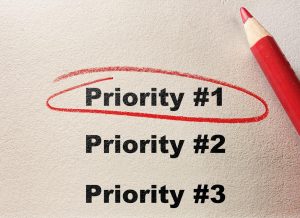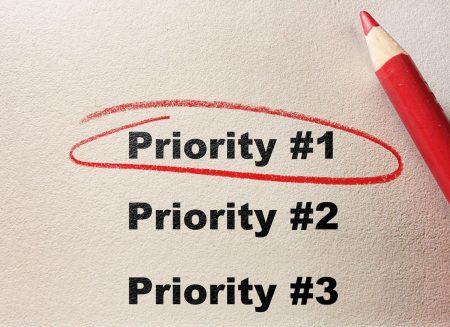Introduction
So, I joined a new gym and am working with a personal trainer. During any workout trainers and clients always shoot the breeze and somehow it came out that I was an estate planning attorney. So, Tom asked “Can I have a card my mom needs a simple will?” I replied that I doubt that is what his mom, or anyone needs. But. this is a common mistaken belief, and worthy of an article. This mistaken belief is why those flocking to cheap online will and trust drafting services are missing the boat. It is also why even many people working with an attorney are getting less than then need. Sales pitch for more estate planning work? Nope, just common sense (as you will see) that is not so common.
A simple will might suffice for what you need for your dispositive plan, but it is unlikely to be all that anyone needs. Tom’s question goes to the heart of why most estate plans are inadequate (or worse!), and why there are so many horror stories about probate battles, huge legal fees (that can often be avoided), stress, frustration, time delays and more bad stuff.
What’s the deal? A will, simple or not, may or may not suffice that that one part of your plan, but that is the point everyone, no matter how rich or poor, how young or old or needs to start with a plan, not a document. If your focus is getting a will (or a revocable trust, or a life insurance policy, etc.) you’re bound not to get what you really need. Bear with me and this should all make sense by the time we’re done. And hopefully, it will forever change how you view estate planning.
Since Tom is my personal trainer, we’ll use that as a framework to evaluate what Tom’s mom might need by way of an estate plan (and not just a will).
And if you think this is going to focus on a pitch for a revocable (living) trust to avoid probate, that is not the answer (although for many people revocable trusts in addition to, not in lieu of, a will, is a good step).
Get Personal
The gym gave me a guidebook to use with my personal training with Tom. The title is “Personal Training Guide.” Let’s pause for a second and consider just the title. “Personal” means just that. It should be personalized to me. It matters what my current health is, what my goals are, and so forth. Tom, why should my workout routine be personalized but should your mom get a standard estate plan, i.e., a simple will?
Knowledge Is Key
The cover of my training guide has several motivation key words on it, the first being “Knowledge.” I like that. Tom spent almost are entire first session getting information from me and educating me about my fitness plan. How does getting a “will” get anyone knowledge? If knowledge about my fitness situation and steps will help me do better (and I believe it not only will, but that is the only logical approach), why is your mom’s estate plan worth less? Shouldn’t she gain knowledge as part of her estate planning process? Just starting with an end result, like a will (or a trust, or a forecast) doesn’t get you where you really want to be. Knowledge is as essential an ingredient in a good estate plan as in a fitness plan. I think in both cases, the more knowledge you have the more issues you can raise. Knowledge will help you craft a better plan (exercise or estate), adjust it as events evolve.
When you are doing your estate plan, getting knowledge is vital to your successful planning. Be careful to get accurate and good information. To state the obvious, not all information online is accurate or useful. There are tons of great information online but you need to know how to find useful information. You might get better quality information from professional websites for banks, trust companies, investment firms, CPA and law firms, etc. They should have some concern about providing accurate information that enhances not harms their reputations. But consider whether they have an “agenda” (are they selling you something!). You can even get good information on many of the common websites but you then have to be discerning.
Warning
The first page of the fitness guide given to me has a big warning about steroid use. Planning needs warnings and guardrails. For your mom’s estate plan, here are some warnings:
1. If you don’t look at the big picture and take a holistic approach to planning. You won’t get a good result. Getting a document is narrow and will almost assuredly overlook issues important to you and your future.
2. If you think estate planning is primarily about planning for death (which is all a will is about) you’ve missed the boat. It should be about planning for your life and the lives of those you care about (which could be a spouse, partner, kids, charities, friends, etc.).
3. Know what the “people” you are working with have at stake. Is the person helping you with your estate plan selling you a product? If someone is pushing a financial product as the answer to your estate plan, be wary. A life insurance policy may be critical to your plan, but just know what the motivation is and what you are getting. Websites sell documents. They have no concern about your planning or educating you (see the comments above about knowledge). That doesn’t make online websites bad, it just means you have to know what they can and cannot do for you. It may not be much different if you hire an attorney and pay a cheap flat rate for only a package of documents. If the fee you’re paying includes discussions, education and planning, that’s ideal. Find out. If planning is extra, maybe it’s worth doing.
4. Repeating the earlier comment above, an estate plan must be personalized for YOU (caps intended). Everyone has something unique or different about their circumstances, their wishes, or their needs.
Gathering Data
The guide Tom’s firm gave me for training has many pages to gather information. You need health, diet, exercise and other background information to create a workout plan. You need to financial, family and other information to do an estate plan. Getting that information organized and written down (paper or electronic) is really critical. Most professional advisers that guide clients on estate planning start the process with an organizer to gather relevant information. Some advisers, e.g. a financial planner, may already have lots of information they gathered for your retirement plan that can be repurposed for your estate plan. So, they might gather less information then an attorney who is just meeting you or who hasn’t seen you in ten years.
Special Circumstances – Key To Personalization
The workout guide asks clients whether there are any special considerations or requests. That same open ended question needs to be asked, answered and perhaps discussed, to do a proper estate plan. The notion of “a simple will” suggests standardization in the estate planning answer and approach. That isn’t plausible with the myriads of special personal situations that could affect anyone’s plan. Examples might include: a physical or mental health issue (and there are scores and scores of different challenges people might face), religious considerations or preferences that should be reflected in a plan, lifestyle choices, spending patterns or goal, and so on. Each of these special situations, not to mention the unique combination of special issues that affect each client, may require special steps in the estate plan. A few examples to illustrate:
Health: The client is living with multiple sclerosis. Work years may be shortened and that needs to be factored into the financial plan which is the foundation of the estate plan. Addressing exacerbations which may create a disability requiring help, which may resolve in some weeks and the client may again resume managing their financial and legal affairs. That potential for on again/off again assistance requires special planning and tailoring of legal documents like a power of attorney and revocable trust to address them.
Family: There are so many permutations of what “family” may be to any particular individual that care must be taken to tailor many plans appropriately. A child out of wedlock, and non-marital partner, a child that has been adopted for born through assisted reproductive technology (ART), and so on. Each nuance requires not only care, special drafting but also consideration of how different state law may affect each aspect of this.
Business Succession: If you own a family business, who should take it over and how?
The nuances are endless. But just as with an exercise plan, you need to address special circumstances in many, perhaps most estate plans.
Examples of What People Looking For A Simple Will Miss
So many people want a simple, low cost, “magic bullet” for their estate plan. Whether it is a simple will, a “living trust,” a “loving trust” or some other magical sounding name, these solutions without plans rarely can achieve what you need. When a broad, holistic approach is taken, built on a foundation, similar conceptually to a good work out plan, greater benefit can be had. Consider:
Car Insurance: Here’s a common mistake. Kid reaches the age when they can drive and parent buys a car, in parent’s name, for kid to drive. That may tag the parent with liability if the child gets into an accident. Rather than subject the parent to the risks of a lawsuit, perhaps parent can gift cash to the kid to buy their own car and insure it in their name. That may be much safer. There are many variations on how this basic planning can be done wrong. I’ve seen a parent purchase their own car in the child’s name and have the child have the car insurance because it is cheaper. In one case the parent lived in a state that had more costly auto insurance. It just doesn’t seem possible that lying about who owns or drives a car to the insurance carrier can end well. All coverage may be lost, leaving tremendous financial exposure. What does this have to do with an estate plan? Everything! If you jeopardize critical insurance coverage you could lose your entire estate and end up with a will that bequeaths no assets. Again, a broad, holistic approach is essential.
Financial: Many people simple overspend. What will your will bequeath if your spending rate is a multiple of what you can really afford.
Family Harmony: Sure, you can leave different amounts to different heirs, include one son-in law but not the other. But how you handle sensitive issues like that can be crucial to reduce the risk of family fights. Fights can result in public lawsuits that can create tremendous embarrassment for the family, and massive legal fees. Sometimes, there are steps that can be taken to avoid making different treatments as obvious. For example, you might have a brokerage account held “ITF” in trust for a particular heir, or have a life insurance policy they own, paid to them, which you pay for. These approaches might facilitate your helping a particular heir with greater need but doing so in a manner that seems equal or more equitable to everyone involved.
Too Little Liability Insurance: This seems to be a very common issue. Many people neglect buying personal excess liability (umbrella) coverage or buy too little. Or they assume it covers risks, like serving on a board of directors, or a vacation home in a different state.
Bad Beneficiary Designations: When is the last time you updated beneficiary designations on life insurance or retirement assets? Is your ex-spouse still listed (don’t dismiss that risk, it happens far to often).
Failure to Use Trusts: Many people neglect to use trusts thinking that trusts are only for people richer then they are. Or mistakenly believing trusts are only to be used if your heir is not responsible. That is a misconception as trusts can protect assets from divorce, lawsuits, income tax or estate tax. So, properly used they can benefit many heirs.
Failure to Administer a Plan: Just like my work out plan I actually have to keep showing up at the gym and stick to my diet even if I achieve my goals. Living of ice cream cake because you reached your weight goal will guarantee that you won’t remain at your target weight very long. If you set up a great estate plan, but never revisit it to monitor eat, that is the estate planning equivalent of an ice cream cake diet. It won’t work. If you have a business, you have to adhere to the formalities of the entity. If you have a trust and ignore proper income tax filings, ignore the terms of the trust (e.g. who can make investment or distribution decisions) your creditors and the IRS will probably be able to ignore that trust too. That’s a recipe for disaster.
The above are only a few of the endless examples of how people don’t plan, plan too simplistically, or just destroy their estate plans. You need to plan, you need to implement and then manage the plan, or you won’t achieve the results you want.
Bad Signs
The exercise guide has some overarching cautions that work for an estate plan too. “If it sounds too good to be true…” You know the old adage. The magic drink mix won’t make you buff in a week. Nor will the magic bullet for an estate plan. “Just buy this annuity and your estate plan will be perfect.” Nope. Not going to happen. It takes work and follow through.
I love this one “Quick fixes never work.” Gee, I wish I could take a magic pill and achieve all my fitness goals. Not so easy. Same of estate planning. You can sign that $99 will, or even better the “Ultimate Revocable Trust” but quick fixes in estate planning are as pointless as in your fitness regimen. You need to do the work and make the efforts, some of which were described above.
Conclusion
So, Tom, shouldn’t your mom’s estate plan be as thorough as the fitness plan you are doing with me? Are you convinced that a “simple will” won’t cut the mustard? It won’t. There is no magic answer. Your mom needs a plan. That plan needs to address her actual circumstances and her wishes, not some “standard” plan or document. It takes work up front to gather data, do an assessment, come up with a plan, then implement the plan. Then she and the family will have to monitor the plan. And with all that, just like my fitness plan, periodically she’ll need to review the overall plan, reassess, and make sure she is still on track.
Read the full article here
















